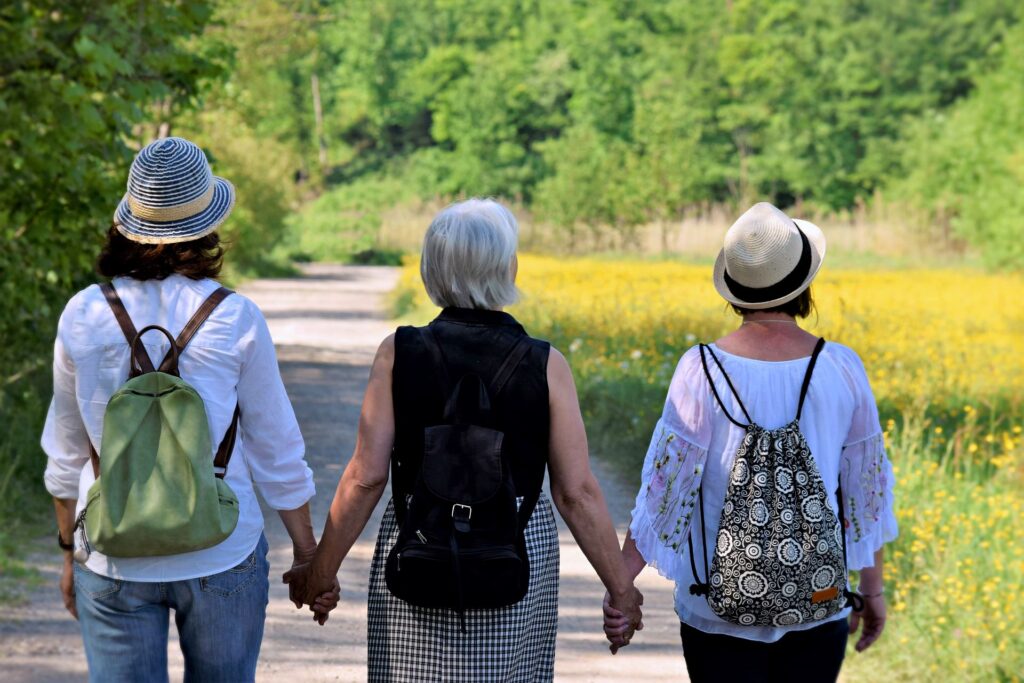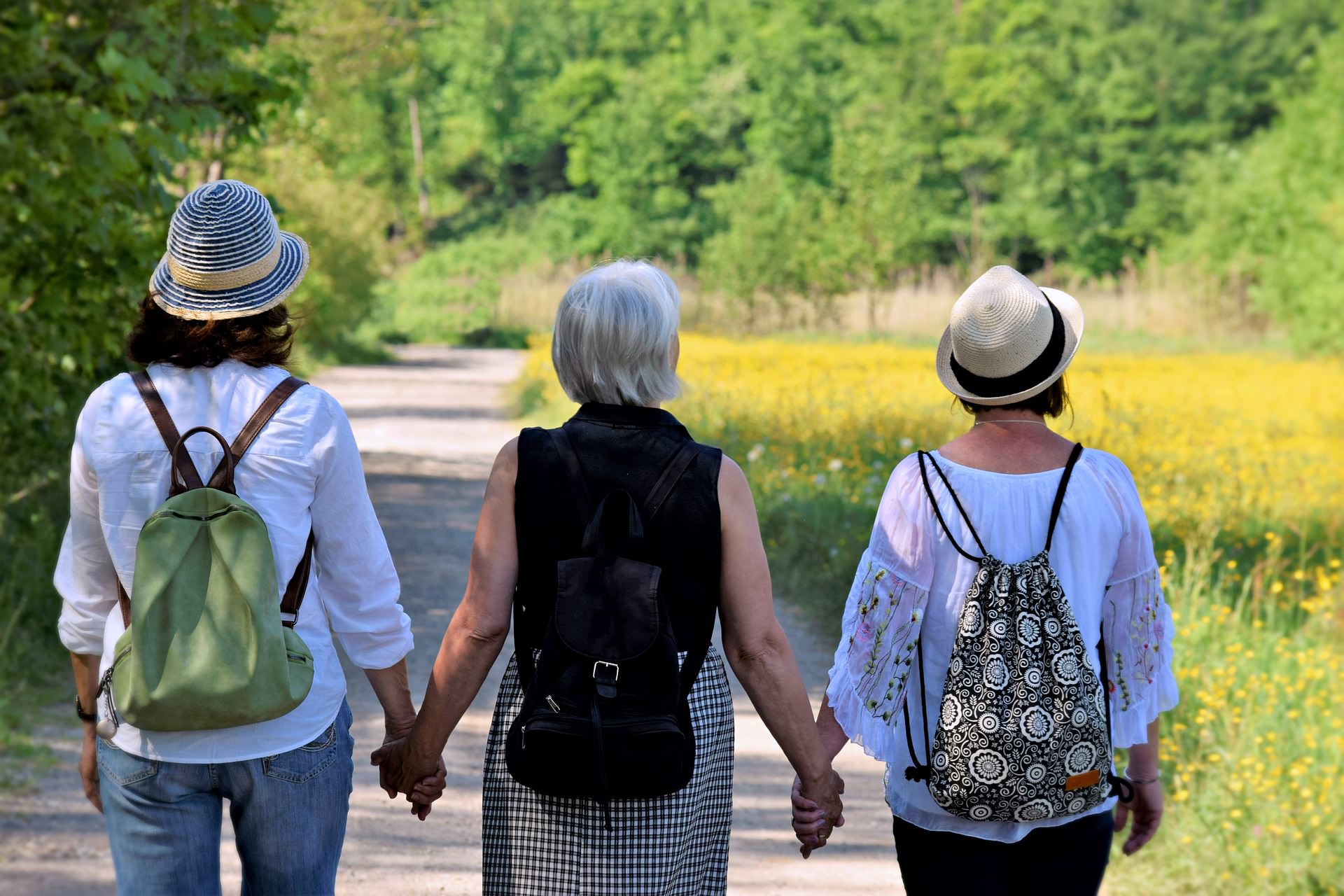I celebrate the fact that awareness of menopause and perimenopause is on the up. For far too long women have silently struggled with symptoms, and been expected to just carry on. But, I do think the conversation could be heading in a dangerous direction. In this blog I explain why, and what I’d like to see instead.
No more putting up and shutting up
First for the good news. Menopause is no longer a dirty word, and perimenopause no longer quite the mystery it once was. The mystery is why this has taken until the 21st century and why we’re still not where we should be.
Increasingly, there is a culture of awareness around menopause. Women don’t have to pretend it’s not happening. This is a good thing: the more we can prepare for the perimenopausal years and not be quite so blindsided when any number of symptoms hit. And, really, perimenopause does encompass the full package: from dry eyes, digestive problems and incontinence to depression, joint pain and UTIs, you name it, perimenopause can bring it! It’s not just the famous hot flushes (though they’re no joke either). And it’s different for everyone.
There are calls from the House of Commons Women’s and Equalities Committee calling for government action on the menopause, saying it should become a protected characteristic under the Equality Act. This would mean women going through the menopause would be protected against discrimination whilst at work. It would give menopause the same status as pregnancy, with similar protections in place.
None of this is happening yet, but it’s a start.
So, yes, more conversation about menopause is a good thing. It empowers women to speak up. It removes stigma and shame. Hopefully, it pushes the medical professions to invest in more training. The majority of GPs have had inadequate training on this stage of a woman’s life and I hear so often from women who have been fobbed off with antidepressants. Now, don’t get me wrong, I’m not against antidepressants per se: they can be life saving for some people. But if the underlying cause of depression symptoms is perimenopausal, then it’s far more effective to treat that.
What’s the problem, then?
If menopause is a hot topic, and the pressure is on for GPs and workplaces to take it more seriously, surely this is to the good? Well, yes, it is. But, as with many things, people at the top look for easy fixes and quick wins. There’s not a lot of scope for nuance. And in the case of menopause, it means the focus is all on HRT (hormone replacement therapy).
Now, before we go any further, I want to be absolutely clear. I am NOT anti-HRT. For some women it is life-saving and life changing. But that doesn’t mean it’s the right answer for everyone.
Rather being anti-HRT I am pro people being able to access the support they need. HRT simply isn’t right for some women. Here are three reasons why HRT may not be the answer:
- You may have a long term health condition for which HRT is contraindicated. Many people who’ve had oestrogen-receptor positive breast cancer, for example, are advised against taking HRT.
- You may not want to take long term medication if you can avoid it. This is a choice that should be respected (where the alternative is more than ‘Well, put up with the symptoms if you don’t want the medicine!’)
- You may have tried HRT and it hasn’t helped. HRT is not a miracle cure.
And that last sentence encapsulates the problem, really. There’s a danger that HRT is being positioned as the miracle cure. The easy fix, end of story. I was alarmed to find that some campaigners were critical of the government’s Women’s Health Strategy as it didn’t focus on the role of HRT. One even said there would be no need for workplace considerations if all menopausal women were on HRT. This is dangerously reductive thinking.
We risk going from one sort of silence to another. From not talking about menopause at all to seeing it as a problem that can be readily fixed with a pill, gel or patch. And, yes, for some people it can. I am not denying that. I welcome the use of HRT for the people who want and need it.
But we need to remember that’s not everyone. And for those people who can’t or don’t want to access HRT, that shouldn’t be the end of the conversation.

The rise of older women
There’s a deeper societal issue that’s been niggling me too. Why can’t we support women to age as they want to?
So much of the talk around HRT is about holding onto youth. About keeping bodies supple. Midlife women, perimenopausal women are still seen as ‘past it’. Age discrimination is alive and kicking, and it’s gendered.
What if, instead, women at the midlife stage and beyond could be recognised for who they are in their own right? Not needing to cling onto signs of youth. But be supported to step into a powerful stage of life.
What if menopause was recognised as a life stage, one that brings with it many changes?
Often, women in the peri-menopausal age group are at the height of their caring responsibilities, alongside any other work and life obligations. Again, this isn’t a responsibility usually shared evenly with the men. You may have both children and ageing parents depending on you for support. What’s this got to do with menopause and HRT? Again, it’s a silent burden that women are simply expected to put up with. Again, the reality and complexity of the situation is denied.
Here’s what I’d like to see instead. A society in which the role and wisdom of perimenopausal and menopausal women was respected.
A society in which menopause was viewed holistically, not as something that can be treated with a quick fix of any kind – HRT or otherwise. More as something that is part of the fabric of the life cycle, just as puberty is.
A society in which the social and medical support networks for women were taken seriously. Where women weren’t left to get on with it. Where, instead, there was proper support in place, and women were informed about all the ways they could look after their health and wellbeing during the menopausal years.
I’m currently desperately working to be able to create a more accessible menopause support clinic, where women are given ALL the options available to help them navigate the menopause (watch this space!). Think bespoke nutritional and lifestyle advice, as well as herbal medical consultations.
In the meantime clients who book in to see me will always get a rounded evidence based evaluation of their options so that they can choose what works best for their individual needs. Remember, I work in partnership with GPs – it doesn’t have to be an ‘either/or’ option.
So, whether HRT is right for you, or not, know that I’m here for you. I will work with you to find an approach that supports your body and your sense of self through peri-menopause and beyond. Menopause is more than a ragbag of annoying symptoms. It’s a stage of life, and we need to give it the attention it deserves!
My diary is open for both new and existing clients. I would love to help you manage menopause in ways that suit you. Contact me to book your consultation. And if you’d like to be the first to hear as I develop the menopause support clinic, just email me so I have your details!



0 Comments